Project management is an important field in lots of organizations as well as a burgeoning career. Industries ranging from tech, healthcare, construction, marketing, event planning, etc., require the touch of a Project Manager.
Naturally, many people are interested in starting a career in project management but do not know how and where to start.
If you are racking your brains and pondering on how to begin a career in project management in 2023, you certainly are not alone. This roadmap will guide you on practical steps you can take in beginning a fulfilling career in project management.
Project management transcends all industries and the acquired skills happen to be key not only in the workplace but in your personal and entrepreneurial life.
Like I always say, the more you learn and acquire project management skills, the more you realize how life is a series of projects and these skills are critical to your daily life.
What are Projects?
According to the Project Management Book of Knowledge PMBOK 6th Edition, projects are temporary endeavors that have specific goals, timelines, and allocated resources to achieve the desired goal.
They typically have defined objectives, stakeholders, and constraints, and require effective management to ensure the success of the project.
As an aspiring Project Manager, you need to, first of all, understand what projects are. If you don’t know this, then it gets difficult for you to recognize when you are dealing with one and this diminishes your chances of harnessing core project management skills to increase the likelihood of success of the project.
Projects are created to provide business value. It can be to create a new product, improve an existing one, or satisfy legal or regulatory requirements. The key thing is that it provides business value to the individual, organization, or stakeholders.
Examples of projects that you should be able to relate to include creating new software, building a house, remodeling your kitchen, etc.
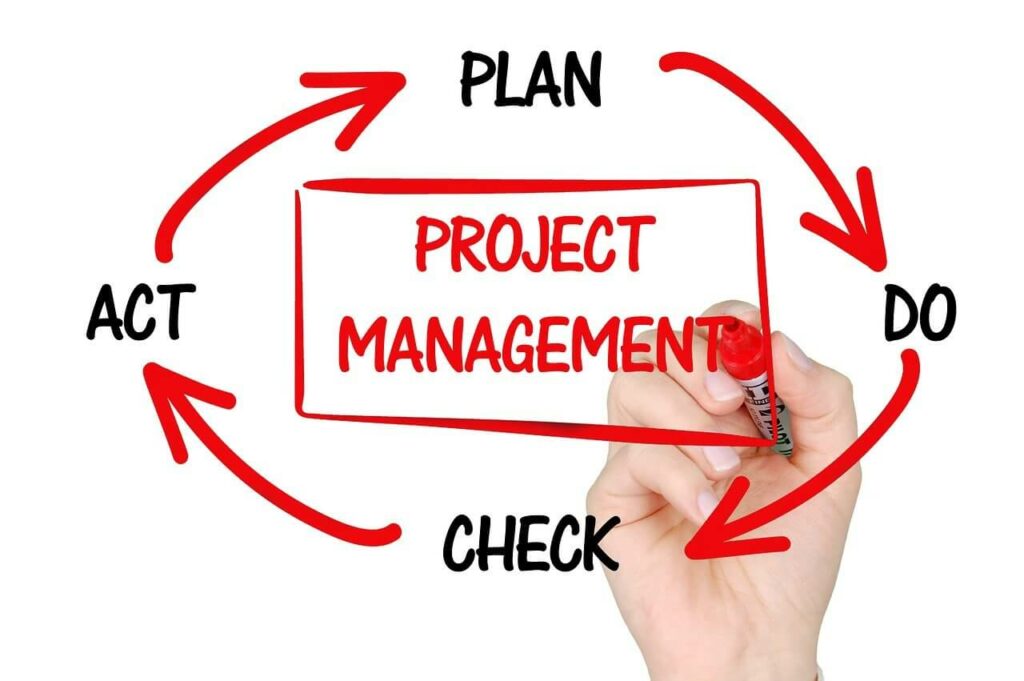
What is Project Management?
Project management is the application of knowledge, skills, tools, and techniques to manage projects to successful outcomes. This involves following project management processes.
It is also the practice of initiating, planning, executing, monitoring and controlling, and closing the work of a team to achieve a specific goal.
Every project requires a level of planning, and an understanding of what to do, when it is to be done, who is to do it, the duration and cost of the project, and the project success criteria.
Project Management involves managing and controlling each of these aspects to project completion and success.
Project management transcends all industries. It could be small or large, simple or complex, self-initiated or assigned, official or personal. However, the principles of managing projects remain the same.

How to Start a Career in Project Management
If you’re interested in starting a career in project management, these steps will help you to embark on this exciting and rewarding career path.
1. Understand the Role and Responsibilities of a Project Manager
Before you commit to a career in project management, it’s essential to grasp the role and responsibilities of a Project Manager.
In essence, a Project Manager is responsible for:
- Defining project goals and objectives
- Developing project plans and schedules
- Allocating resources and managing budgets
- Coordinating and leading project teams
- Identifying and mitigating risks
- Monitoring progress and making necessary adjustments
- Ensuring effective communication among stakeholders
- Closing projects and conducting post-project evaluations
Understanding the various aspects of a Project Manager’s role will help you determine if this career path aligns with your skills, interests, and professional goals.
2. Acquire the Necessary Skills
To succeed in project management, you’ll need a diverse skillset that includes both technical and soft skills which can be developed through a combination of formal education, professional experience, and self-study.
Some of the key skills required for a Project Manager include:
- Leadership and team management
- Time management and prioritization
- Critical thinking and problem-solving
- Risk assessment and management
- Budgeting and financial planning
- Communication and negotiation
- Adaptability and flexibility
3. Pursue Relevant Education and Training
While a bachelor’s degree is often a basic requirement for project management positions, pursuing a degree or certification in a related field can provide you with a solid foundation in project management principles and practices.
Some popular educational options include:
- Bachelor’s or master’s degree in project management, business, or a related field.
- Professional certifications, such as the Project Management Professional (PMP) or Certified Associate in Project Management (CAPM) from the Project Management Institute (PMI), PRINCE2, etc.
- Training programs and workshops in project management methodologies, such as Agile, Scrum, or Lean.
4. Gain Relevant Experience
Hands-on experience is invaluable when it comes to building your project management skills and expertise.
To gain experience, consider the following:
- Volunteering for project-related tasks or leading a small project at your current job
- Seeking internships or entry-level positions in project management or related fields
- Joining professional organizations, such as PMI, to network with industry professionals and gain access to resources and opportunities
Project Management Career Framework
While most people are familiar with the Project Manager role, project management is a diverse field with a wide range of career paths available to aspiring professionals.
This project management career framework gives a guide on how you can start and grow in this field.
1. Project Coordinator
A Project Coordinator is an entry-level role in the project management field, often serving as a stepping stone to more advanced positions.
In this role, individuals assist Project Managers by handling administrative tasks, tracking project progress, and facilitating communication among team members.
Project Coordinators are essential in ensuring that project tasks are completed on time and within budget, while also supporting the Project Manager in managing risks and change requests.
2. Project Manager
Project Managers are the backbone of any project management team, responsible for overseeing the entire lifecycle of a project from conception to completion.
These professionals are skilled in developing project plans, allocating resources, managing budgets, and ensuring that projects are completed on time, within scope, and to the satisfaction of all stakeholders.
Project Managers must possess strong leadership, communication, and problem-solving skills to effectively coordinate and motivate their teams.
3. Project Management Office (PMO) Roles
A Project Management Office (PMO) is a centralized function within an organization that supports the effective management of projects, programs, and portfolios.
PMO roles can vary widely depending on the size and focus of the organization but may include positions such as PMO Director, PMO Analyst, and PMO Coordinator.
These roles are responsible for developing and maintaining project management processes, tools, and best practices, as well as providing support and guidance to project teams across the organization.
4. Program Manager
A Program Manager is a strategic role in project management, responsible for overseeing a portfolio of projects and ensuring that they are collectively aligned with an organization’s strategic objectives.
Program Managers work closely with Project Managers to ensure that individual projects are executed in a manner that supports the broader program goals.
They are also responsible for managing interdependencies among projects, tracking program-level risks, and coordinating resources across multiple projects.
5. Portfolio Manager
Portfolio Managers take on a higher level of responsibility within the project management field, overseeing an organization’s entire portfolio of projects and programs.
They are responsible for selecting, prioritizing, and balancing projects to maximize the overall value delivered to the organization.
Portfolio Managers work closely with executive leadership to align the project portfolio with the organization’s strategic goals and to ensure that resources are allocated efficiently across projects.
6. Project Management Consultant
Project Management Consultants are external experts who provide specialized advice and guidance to organizations on their project management practices.
These professionals help organizations improve their project management capabilities by conducting assessments, identifying areas for improvement, and providing tailored recommendations to enhance project performance.
Project Management Consultants may also be called upon to assist in the planning, execution, and closure of specific projects.
An Overview of the Project Manager Role
There are different key roles in project management, and the role of a Project Manager is one that must be highlighted and defined.
While each member of a project team has their subject matter expertise, the Project Manager is the driving force behind the project.
A Project Manager is a skilled professional responsible for leading, planning, executing, and closing a project.
To succeed in this role requires having a clear vision of the project and how it supports the strategic goals and needs of the organization or customer, communicating it to the team, and coaching them to achieve a successful project outcome.
As a Project Manager, you need to possess the knowledge, experience, and skills to guide the team to achieve the project objectives within the constraints of scope, schedule, budget, and quality, while balancing the stakeholder expectations, managing risks, and addressing challenges as they arise.
What do Project Managers do?
The duties of Project Managers may vary to an extent depending on the various industries or domains, but the core activities remain the same.
As earlier iterated, Project Managers are tasked with the responsibility of overseeing the entire project lifecycle and ensuring that projects are executed within the set constraints of time, scope, and budget.
From initiation to closure, Project Managers employ a mix of skills, techniques, and tools to guide their teams and stakeholders through the various stages of project development.
The core responsibilities of a Project Manager include:
1. Defining Project Objectives and Scope
A Project Manager’s journey begins with a clear understanding of the project objectives and scope.
Every project is executed to achieve desired goals, and Project Managers are responsible for aligning these goals with the organization’s strategic objectives and ensuring that all stakeholders share a common vision.
By defining the project’s purpose, milestones, and deliverables, Project Managers set the foundation for the entire project and establish a shared understanding among team members.
2. Planning and Resource Allocation
Once the project objectives and scope are defined, Project Managers then create a comprehensive project plan that outlines the various tasks, timelines, and resources required to achieve the project goals.
This plan acts as a blueprint for the project, providing team members with a clear roadmap to follow, and is a point of reference throughout the life cycle of the project.
Project managers also allocate resources (including team members, equipment, and budget) efficiently to ensure that each project phase is well-supported.
3. Managing Risks and Issues
Risks and issues are inevitable in any project. Good Project Managers are proactive in identifying and managing risks and issues that could potentially derail the project and devising strategies to ensure that they don’t derail the planned project outcome.
They continuously monitor the project’s progress and implement contingency plans to address potential challenges.
This risk management process involves identifying potential risks, assessing their impact, and devising appropriate mitigation strategies to minimize their consequences on the project.
4. Monitoring Progress and Performance
Throughout the project’s lifecycle, Project Managers constantly monitor and control the project’s progress to ensure that it stays on track.
They employ various performance measurement techniques to evaluate the project’s status, identify deviations from the plan, and take corrective actions as needed.
This continuous monitoring also allows Project Managers to keep stakeholders informed about the project’s progress and address any concerns they may have.
6. Ensuring Effective Communication
Effective communication is a critical aspect of successful project management. It’s estimated that as a Project Manager, you will 80% of your time on communication. In my experience, it may even be more than that.
Project managers foster an open and transparent communication environment within the project team, ensuring that all team members are informed about relevant project information and updates.
They also act as a liaison between the project team and stakeholders, managing expectations and keeping them up-to-date on project developments.
7. Closing the Project
As the project approaches completion, Project Managers oversee the process of closing the project, ensuring that all project deliverables have been met and all documentation has been finalized.
They also conduct project reviews and lessons-learned sessions to identify areas for improvement and apply these insights to future projects.
This process of reflection and learning is essential for continuous improvement in project management practices.
What is the Difference between a Project Manager and a Project Coordinator?
In the project management career framework, you must have seen the role of project coordinator and you may be wondering how this differs from the role of a Project Manager.
While they both play important roles in the successful execution and management of a project, their responsibilities and authority levels differ.
A Project Manager is responsible for the overall success of a project, while a Project Coordinator supports the Project Manager by handling administrative tasks, coordinating resources, and facilitating communication.
Also, the Project Manager has a higher level of authority and decision-making power, while the Project Coordinator typically provides assistance and support to ensure the project runs smoothly.
Here’s a head-to-head comparison of their roles and responsibilities:
1. Authority
A Project Manager has higher authority and decision-making power in the project. They are responsible for the overall project planning, execution, and completion.
On the other hand, a Project Coordinator has less authority compared to a Project Manager and typically reports to the Project Manager or another higher authority.
2. Planning
When it comes to planning a project, the Project Manager is the chief architect here. They define the project scope, create the project plan, and set baselines, budgets, and resource allocations.
Project Coordinators assist in project planning by gathering information, helping to develop the project schedule, and tracking deadlines.
3. Risk Management
Project Managers identify, assess, and manage project risks, ensuring that potential issues are addressed before they become problems.
Project coordinators on the other hand may assist with risk identification, and administrative tasks like organizing meetings, preparing documentation, and maintaining project files.
4. Stakeholder Management
Project Managers act as the primary point of contact for all stakeholders, including clients, sponsors, and team members.
They manage expectations and ensure that stakeholders are informed and involved throughout the project.
Project Coordinators facilitate communication among team members and ensure that everyone is kept informed of project updates and changes.
5. Leadership
The job of a project manager goes beyond management. They also lead the project team and provide direction, guidance, and motivation to ensure that team members work effectively toward project goals.
Project coordinators help manage project resources by coordinating assignments and monitoring resource usage.
6. Performance Tracking
Project managers monitor project progress, track key performance indicators (KPIs), and make necessary adjustments to keep the project on track.
Project Coordinators assist in tracking project progress by updating schedules, collecting status reports, and providing regular updates to the Project Manager.
Conclusion
Like anything rewarding, you need effort and determination to get into project management and have a successful career in it.
But as iterated, it is indeed rewarding, and it enables you to develop skills that are useful in other aspects of your life, along with the possibility of earning well.
So if you want to start out, then follow the project management career framework and you are on your way.
FAQs
How Long does it take to become a Project Manager?
The time it takes to become a project manager can vary depending on a variety of factors including chosen career path and individual circumstances.
On average, it could take from 5 to 7 years if taking the degree route with 4 years of a bachelor’s degree in a related field, getting certifications, and practical experience.
Can you be a Project Manager without Technical Experience?
Yes, it’s possible to be a Project Manager without technical experience. Project management encompasses various industries and skills that go beyond technical knowledge such as communication, leadership, and organization.
While some technical expertise can be beneficial, Project Managers can always rely on subject matter experts for expert judgment.
Is Project Management Career worth it?
Sure, a project management career can be fulfilling and worth it. There are lots of benefits including high earning potential, diverse job opportunities across various industries, and the satisfaction of driving successful projects to achieve organizational goals.
However, what really makes it worth it is if your personal interests, skills, and career goals are aligned with this career path.
Can you become a Project Manager without a Degree?
Yes, it’s entirely possible to become a Project Manager without a degree. While a degree can be beneficial, a lack of formal education can be compensated for with practical experience, relevant certifications, and strong project management skills.
For certifications, you can start out with CAPM which doesn’t require a degree, then progress to PMP. There are a lot of employers who value skills and hands-on experience over formal degrees.
Is it hard to get a job as a Project Manager?
Getting any professional job including that of a Project Manager can be competitive. It however depends on various factors such as the job market, industry, and your qualifications.
The demand for Project Managers remains high in lots of countries, and by building a strong skill set, gaining practical experience, obtaining relevant certifications, and networking, your chances of getting a job as a Project manager are relatively fine.

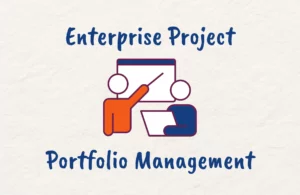
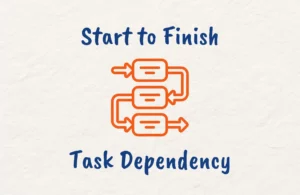
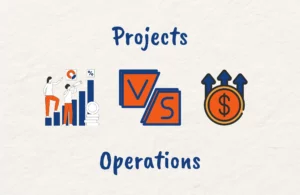
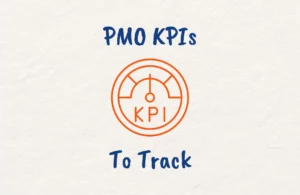
Everything is very open with a really clear explanation of the issues. It was really informative. Your website is very useful. Many thanks for sharing!
Thank you. Glad to help.